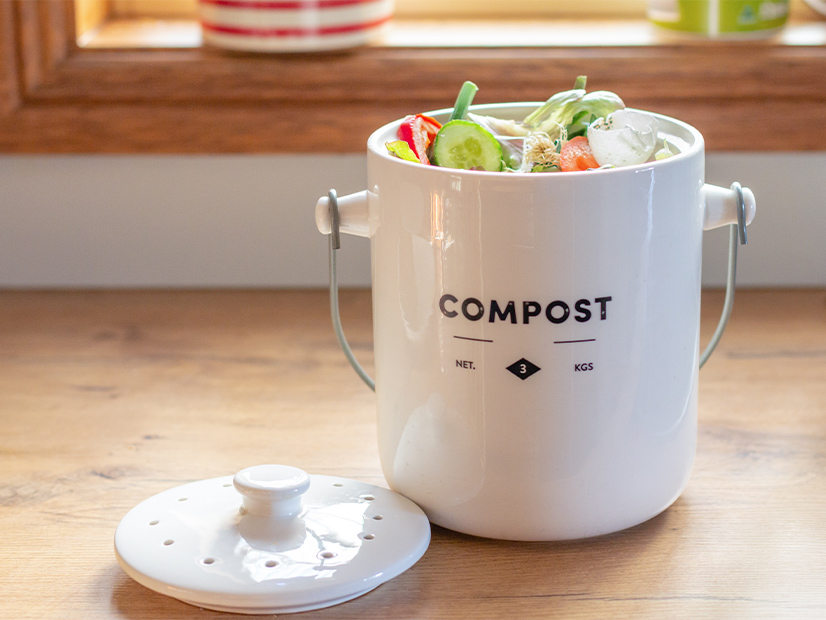
The New Hampshire Department of Environmental Services (DES) released a draft solid waste management plan Monday that includes a goal of considering climate change in all management planning and decision-making.
Efforts to reach the state’s goal of reducing solid waste disposal 45% by 2050 will have indirect benefits related to the reduction of greenhouse gas emissions, DES said in the plan. New Hampshire set a non-binding emission reduction goal in 2009 of 80% below 1990 levels by 2050, and a bill to establish more stringent reduction targets did not make it through the legislature in this year’s session.
Recycling and food waste diversion practices are two areas the department said could support state climate goals by reducing energy use and associated emissions and reducing methane emissions from food in landfills. In addition, the department said the buildout of local diversion markets would reduce transportation emissions.
Gov. Chris Sununu signed a bill last summer that found New Hampshire “lags behind” in waste reduction and recycling policies and established a solid waste management working group to help DES develop a long-range management plan.
The state’s draft 10-year plan is based on priorities set in 1990 by the legislature that emphasize reducing waste generation at the source and increasing recycling and composting. Despite those priorities, DES said the state’s waste management infrastructure has not shifted significantly from disposal to the preferred management methods over the last 30 years.
“Even though landfilling represents the least preferred method … landfills comprise a significant portion of New Hampshire’s overall waste management capacity,” DES said.
There is no ban on food waste and common food packaging in New Hampshire landfills, but the department recommended in the plan that the state “explore” such legislation. The plan also recommends consideration of legislation that would update state agencies’ procurement policies to prioritize products with “high post-consumer recycled content.”
The department is accepting comments on the draft plan through Aug. 26 and will publish a final version Oct. 1.


